-
 Bitcoin
Bitcoin $117500
2.15% -
 Ethereum
Ethereum $3911
6.19% -
 XRP
XRP $3.316
10.79% -
 Tether USDt
Tether USDt $1.000
0.01% -
 BNB
BNB $787.2
2.24% -
 Solana
Solana $175.2
4.15% -
 USDC
USDC $0.9999
0.00% -
 Dogecoin
Dogecoin $0.2225
8.40% -
 TRON
TRON $0.3383
0.28% -
 Cardano
Cardano $0.7868
6.02% -
 Stellar
Stellar $0.4382
9.34% -
 Hyperliquid
Hyperliquid $40.92
7.56% -
 Sui
Sui $3.764
7.63% -
 Chainlink
Chainlink $18.48
10.66% -
 Bitcoin Cash
Bitcoin Cash $582.1
1.88% -
 Hedera
Hedera $0.2601
6.30% -
 Avalanche
Avalanche $23.33
4.94% -
 Ethena USDe
Ethena USDe $1.001
0.02% -
 Litecoin
Litecoin $122.3
2.04% -
 UNUS SED LEO
UNUS SED LEO $8.969
-0.27% -
 Toncoin
Toncoin $3.339
0.86% -
 Shiba Inu
Shiba Inu $0.00001287
4.30% -
 Uniswap
Uniswap $10.43
7.38% -
 Polkadot
Polkadot $3.861
5.08% -
 Dai
Dai $1.000
0.02% -
 Bitget Token
Bitget Token $4.513
3.41% -
 Monero
Monero $267.7
-6.18% -
 Cronos
Cronos $0.1499
4.14% -
 Pepe
Pepe $0.00001110
5.15% -
 Aave
Aave $284.9
8.28%
Does Trust Wallet support smart contracts?
Trust Wallet supports smart contracts on Ethereum and EVM-compatible chains, allowing users to interact with DApps and DeFi protocols directly from the app.
Apr 03, 2025 at 01:21 am
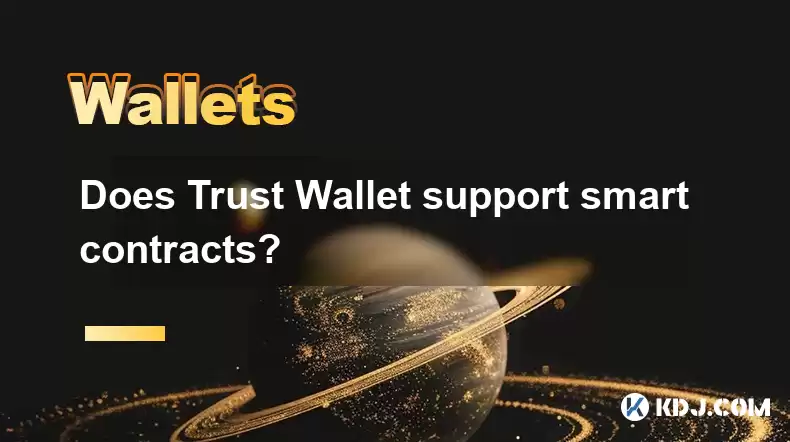
Trust Wallet, a popular mobile cryptocurrency wallet, is known for its user-friendly interface and support for a wide range of cryptocurrencies. One of the key features that users often inquire about is its ability to interact with smart contracts. Smart contracts are self-executing contracts with the terms of the agreement directly written into code, which run on blockchain networks like Ethereum. This article will explore whether Trust Wallet supports smart contracts, how users can interact with them, and what functionalities are available within the wallet.
What are Smart Contracts?
Smart contracts are programs stored on a blockchain that automatically execute when certain conditions are met. They are most commonly associated with the Ethereum blockchain, where they are written in a language called Solidity. Smart contracts can be used for a variety of purposes, such as automating transactions, managing agreements, and creating decentralized applications (DApps). They eliminate the need for intermediaries, ensuring that transactions are transparent, secure, and efficient. Understanding smart contracts is crucial for anyone looking to interact with them using a wallet like Trust Wallet.
Trust Wallet's Support for Smart Contracts
Trust Wallet does indeed support smart contracts. This support is primarily focused on the Ethereum blockchain, where smart contracts are most prevalent. Users can interact with Ethereum-based smart contracts directly from the Trust Wallet app. This includes the ability to execute functions within smart contracts, such as sending tokens, participating in decentralized finance (DeFi) protocols, and interacting with DApps. Trust Wallet's integration with smart contracts enhances its utility, making it a versatile tool for users interested in the broader ecosystem of decentralized applications.
How to Interact with Smart Contracts in Trust Wallet
Interacting with smart contracts in Trust Wallet is straightforward. Here’s how you can do it:
- Open Trust Wallet: Launch the Trust Wallet app on your mobile device.
- Navigate to the DApps Browser: Tap on the "Browser" icon at the bottom of the screen to access the in-built DApps browser.
- Select a DApp: Choose a DApp or smart contract you want to interact with. Trust Wallet has a list of popular DApps you can explore.
- Connect Wallet: Once you select a DApp, you will be prompted to connect your wallet. Confirm the connection to proceed.
- Interact with the Smart Contract: Follow the on-screen instructions to execute the desired function within the smart contract. This could be anything from swapping tokens to participating in a DeFi yield farming program.
By following these steps, users can seamlessly interact with smart contracts and leverage the full potential of decentralized applications.
Key Features for Smart Contract Interaction
Trust Wallet offers several key features that enhance the user experience when interacting with smart contracts:
- In-Built DApps Browser: Trust Wallet includes a built-in browser that allows users to access and interact with DApps directly within the app. This eliminates the need to navigate to external websites, improving security and convenience.
- WalletConnect Support: Trust Wallet supports WalletConnect, a protocol that enables secure connections between wallets and DApps. This feature allows users to connect to a wider range of DApps and smart contracts.
- Ethereum and EVM-Compatible Chains: Trust Wallet supports not only Ethereum but also other EVM-compatible chains like Binance Smart Chain and Polygon. This broadens the scope of smart contracts users can interact with.
- Transaction Confirmation: Before executing any smart contract function, Trust Wallet prompts users to confirm the transaction details, ensuring they are aware of the actions they are taking.
These features make Trust Wallet a robust platform for engaging with smart contracts and decentralized applications.
Security Considerations When Using Smart Contracts
While interacting with smart contracts can be powerful, it is essential to consider the security implications. Trust Wallet takes several measures to ensure user safety:
- Private Key Management: Trust Wallet stores private keys locally on the user's device, reducing the risk of unauthorized access.
- Transaction Verification: Each transaction, including those involving smart contracts, requires user confirmation, allowing for a final check before execution.
- Phishing Protection: Trust Wallet's DApps browser includes phishing protection to warn users about potentially malicious websites.
- Regular Updates: The wallet is regularly updated to address any security vulnerabilities and improve overall performance.
By understanding and utilizing these security features, users can safely interact with smart contracts and enjoy the benefits of decentralized applications.
Examples of Smart Contract Use Cases in Trust Wallet
Trust Wallet's support for smart contracts opens up a variety of use cases for users. Here are some examples:
- Decentralized Finance (DeFi): Users can participate in DeFi protocols like lending, borrowing, and yield farming. For instance, they can stake their assets in platforms like Aave or Compound directly from Trust Wallet.
- Token Swaps: Trust Wallet allows users to swap tokens using decentralized exchanges (DEXs) like Uniswap or PancakeSwap. This is facilitated through smart contracts that handle the exchange process.
- NFT Trading: Users can buy, sell, and trade non-fungible tokens (NFTs) on marketplaces like OpenSea, which operate using smart contracts.
- Governance: Some projects allow token holders to vote on governance proposals through smart contracts. Trust Wallet users can participate in these governance processes.
These use cases demonstrate the versatility and power of smart contracts within the Trust Wallet ecosystem.
Limitations and Future Developments
While Trust Wallet offers robust support for smart contracts, there are some limitations to be aware of:
- Ethereum-Centric: The primary focus is on Ethereum and EVM-compatible chains. Support for smart contracts on other blockchains may be limited.
- Complexity: Interacting with smart contracts can be complex, especially for beginners. Trust Wallet aims to simplify this process but may not cover all scenarios.
- Gas Fees: Executing smart contract functions on Ethereum can incur high gas fees, which can be a barrier for some users.
Looking to the future, Trust Wallet continues to evolve and improve its smart contract capabilities. Potential developments include:
- Expanded Blockchain Support: Adding support for more blockchains and their respective smart contract platforms.
- Enhanced User Interface: Improving the user interface to make smart contract interactions even more intuitive.
- Integration with More DApps: Continuously adding new DApps and smart contracts to the in-built browser.
These developments will further enhance Trust Wallet's position as a leading wallet for smart contract interactions.
Common Questions Related to Trust Wallet and Smart Contracts
Q: Can I use Trust Wallet to interact with smart contracts on blockchains other than Ethereum?
A: Trust Wallet primarily supports Ethereum and EVM-compatible chains like Binance Smart Chain and Polygon. While it does not currently support smart contracts on non-EVM blockchains like Solana or Cardano, future updates may expand this functionality.
Q: Is it safe to interact with smart contracts using Trust Wallet?
A: Yes, Trust Wallet takes several security measures to ensure safe interactions with smart contracts. These include local private key storage, transaction verification, phishing protection, and regular updates to address vulnerabilities.
Q: How do I know if a DApp is compatible with Trust Wallet?
A: Most popular DApps that operate on Ethereum or EVM-compatible chains are compatible with Trust Wallet. You can check the DApp's official website or documentation to confirm compatibility. Trust Wallet's in-built DApps browser also lists many compatible DApps.
Q: Can I create my own smart contracts using Trust Wallet?
A: Trust Wallet does not currently offer tools for creating smart contracts. However, you can interact with existing smart contracts and DApps. If you need to create smart contracts, you would need to use a separate development environment and then interact with them using Trust Wallet.
Q: What are the gas fees associated with smart contract interactions in Trust Wallet?
A: Gas fees are transaction fees required to execute smart contract functions on the Ethereum network. These fees can vary based on network congestion and the complexity of the transaction. Trust Wallet displays the estimated gas fee before you confirm any transaction, allowing you to decide whether to proceed.
Q: Can I use Trust Wallet to participate in DeFi protocols?
A: Yes, Trust Wallet supports interaction with various DeFi protocols. You can lend, borrow, stake, and participate in yield farming directly from the wallet using the in-built DApps browser.
Q: How can I ensure I am interacting with legitimate smart contracts in Trust Wallet?
A: To ensure you are interacting with legitimate smart contracts, always use the official DApps listed in Trust Wallet's browser. Be cautious of phishing attempts and verify the smart contract addresses on the project's official website or through reputable sources.
Q: Are there any tutorials or guides available for using smart contracts in Trust Wallet?
A: Trust Wallet provides various resources, including tutorials and guides, on their official website and through their support channels. These resources can help you understand how to interact with smart contracts and use the wallet's features effectively.
Disclaimer:info@kdj.com
The information provided is not trading advice. kdj.com does not assume any responsibility for any investments made based on the information provided in this article. Cryptocurrencies are highly volatile and it is highly recommended that you invest with caution after thorough research!
If you believe that the content used on this website infringes your copyright, please contact us immediately (info@kdj.com) and we will delete it promptly.
- XRP ETF, Bitcoin ETF, and Japan: A New Era for Crypto Investing?
- 2025-08-08 14:30:12
- Crypto, Congress, and Bills: Navigating the Regulatory Landscape in 2025
- 2025-08-08 14:30:12
- Union Jack Oil, Unused Gas, and Bitcoin: A New York Minute on UK's Crypto-Energy Play
- 2025-08-08 14:50:12
- Bitcoin Price: Bullish Flag Points to $123K Breakout?
- 2025-08-08 14:50:12
- Crypto Group's WNBA Dildo Toss: Meme Coin Mania or Just Plain Dumb?
- 2025-08-08 14:55:13
- Stablecoins, Hong Kong, and On-Chain Finance: Navigating the Regulatory Maze
- 2025-08-08 12:30:12
Related knowledge

How to reset your MetaMask password
Aug 08,2025 at 01:28pm
Understanding the MetaMask Password Reset ProcessMany users confuse the MetaMask password with the seed phrase or private key, but they serve differen...

How to buy Dogecoin on MetaMask
Aug 08,2025 at 03:42am
Understanding Dogecoin and MetaMask CompatibilityDogecoin (DOGE) is a popular meme-based cryptocurrency that operates on its own blockchain, originall...
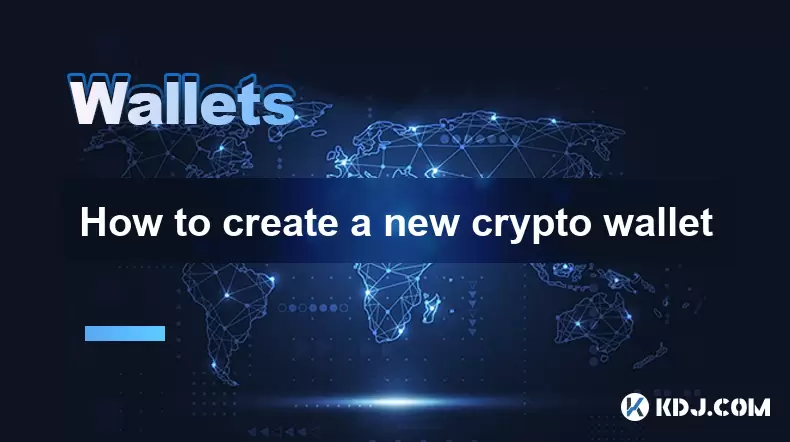
How to create a new crypto wallet
Aug 07,2025 at 09:22pm
Understanding the Basics of a Cryptocurrency WalletA cryptocurrency wallet is a digital tool that allows users to store, send, and receive digital ass...
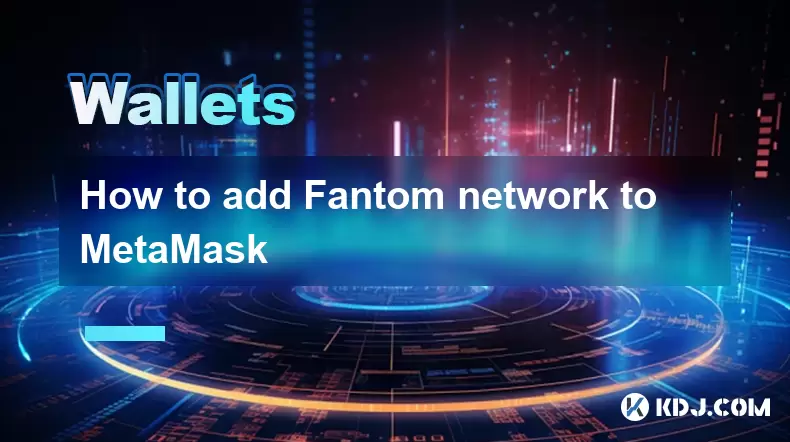
How to add Fantom network to MetaMask
Aug 07,2025 at 08:21am
Understanding the Fantom Network and MetaMask IntegrationThe Fantom network is a high-performance, scalable, and secure blockchain platform designed f...
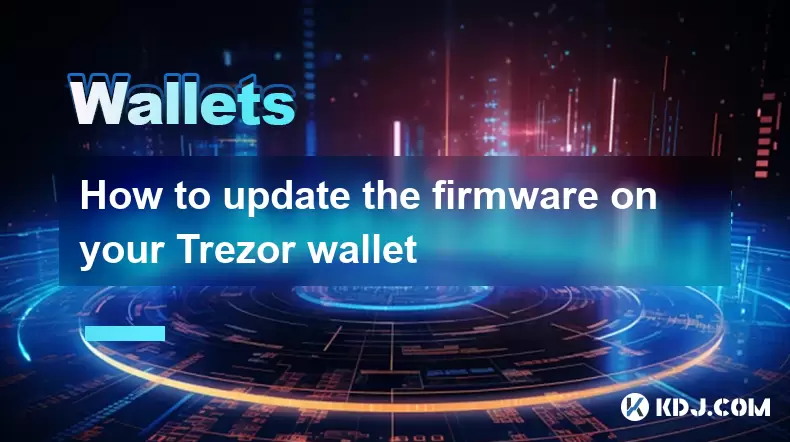
How to update the firmware on your Trezor wallet
Aug 07,2025 at 05:00pm
Understanding the Role of Staking in Cryptocurrency EcosystemsStaking has become a fundamental component of many blockchain networks that operate unde...
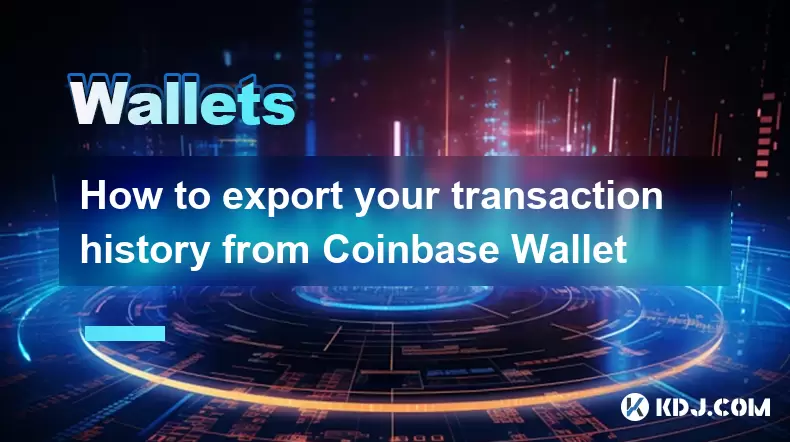
How to export your transaction history from Coinbase Wallet
Aug 07,2025 at 06:50am
Understanding Coinbase Wallet and Transaction HistoryCoinbase Wallet is a self-custodial cryptocurrency wallet that allows users to store, manage, and...

How to reset your MetaMask password
Aug 08,2025 at 01:28pm
Understanding the MetaMask Password Reset ProcessMany users confuse the MetaMask password with the seed phrase or private key, but they serve differen...

How to buy Dogecoin on MetaMask
Aug 08,2025 at 03:42am
Understanding Dogecoin and MetaMask CompatibilityDogecoin (DOGE) is a popular meme-based cryptocurrency that operates on its own blockchain, originall...

How to create a new crypto wallet
Aug 07,2025 at 09:22pm
Understanding the Basics of a Cryptocurrency WalletA cryptocurrency wallet is a digital tool that allows users to store, send, and receive digital ass...

How to add Fantom network to MetaMask
Aug 07,2025 at 08:21am
Understanding the Fantom Network and MetaMask IntegrationThe Fantom network is a high-performance, scalable, and secure blockchain platform designed f...

How to update the firmware on your Trezor wallet
Aug 07,2025 at 05:00pm
Understanding the Role of Staking in Cryptocurrency EcosystemsStaking has become a fundamental component of many blockchain networks that operate unde...

How to export your transaction history from Coinbase Wallet
Aug 07,2025 at 06:50am
Understanding Coinbase Wallet and Transaction HistoryCoinbase Wallet is a self-custodial cryptocurrency wallet that allows users to store, manage, and...
See all articles

























































































